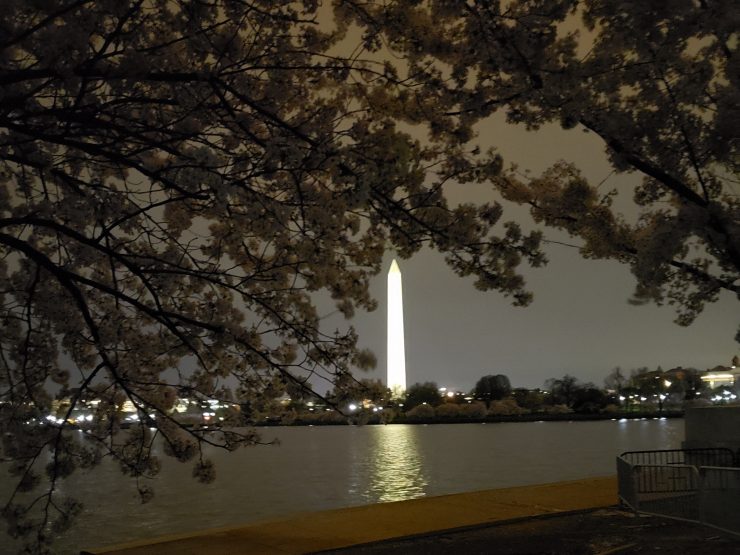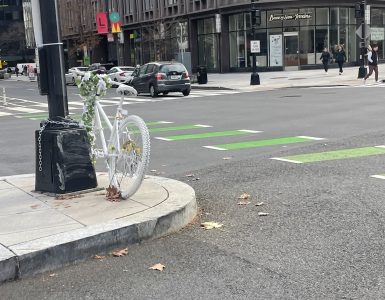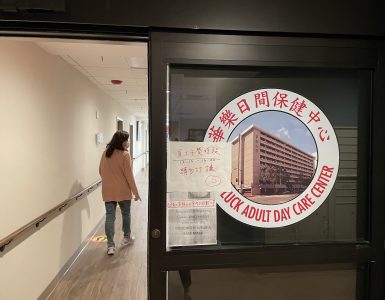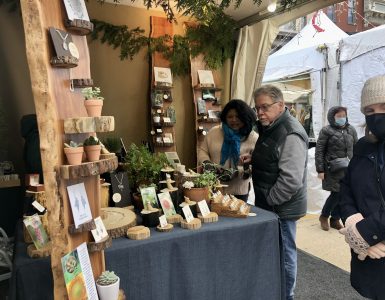Ryan Shaffer thinks that President Donald Trump and his administration are “not helpful and not relevant” in dubbing the coronavirus names like the “Chinese virus” or the “Kung Flu,” respectively. But for the president of the Japan-America Society of Washington D.C., the coronavirus has caused more than worrisome words. The organization’s annual Sakura Matsuri Street Festival has been postponed.
“We’re not using the word canceled,” said Shaffer.
The Japan-America Society hosts the popular street festival as well as the National Japan Bowl, which it is reimagining as a virtual competition, as part of Washington, D.C.’s National Cherry Blossom Festival.
Diana Mayhew, president and CEO of the National Cherry Blossom Festival, said, “It is a difficult decision and one that we do not take lightly,” in a news release about the cancelation of the festival.
After four months of planning for the events, both of the Japan-America Society’s events will be postponed until May, if circumstances allow, said Shaffer. The organization has definitely been financially set back, he said. But if the events end up happening in May, “no harm, no foul,” said Shaffer, it will merely have to plan to devote more money to salaries.
“The question is: will people attend?” said Shaffer.
There is a concern for an Asian event, said Shaffer. Although most people involved in the events are friends and neighbors from the D.C. area, some of the performers do travel from Japan. “Who would want to go to an Asian-flavored event at the moment that the coronavirus is breaking out in Asia?” said Shaffer.
The virus, which started in China and spread from Eastern Asia throughout the entire world, has inspired racially motivated attacks against Asian Americans.
Shaffer, who is not Asian-American, said that he had not seen or experienced this kind of racism firsthand. “The racism that I’ve seen involves people not able to understand the difference between a Chinese person and a Japanese person and having that bleed over.”
Allie Santiago, a Phillipino-American student living in D.C., said that she has not personally experienced this sort of racism, “But I’m not coded as Asian.” She said most of the time, people regard her as Latinx and she ends up facing biases connected to that. “I definitely think it’s a visual assumption that people make.”
“Also, I haven’t really been out much,” she added.
Shaffer was in Japan a few weeks ago, before the quarantines in the United States were issued. He had to self-quarantine upon his return. At that time there were more cases in New York than in Tokyo. “The notion that someone should have to quarantine just because they’re coming from that area was absurd,” he said.
Right now, there are more cases of coronavirus in the United States than in Japan.
“I don’t know if it’s racism or the instinct that a problem that exists overseas is more acute and scary than a problem that exists here,” said Shaffer of people’s feelings toward Eastern Asia right now. But it’s “irrational,” he said. “The risk of contracting the virus has nothing to do with Asia,” said Shaffer. “A disease is a disease. It doesn’t care.”
Not only is the Cherry Blossom Festival a showcase of the beginning of the spring blossoms, but it’s also a celebration of the rich Japanese culture from which these trees came.
The cherry blossoms were a gift of friendship from Japan to the United States in 1912, according to the National Park Service. Today, the city observes a four-week festival during peak bloom to celebrate these 3,000 trees, art, and diverse cultures.
“The National Cherry Blossom Festival has for the past 93 years, and will continue to do so, celebrate, promote, and preserve the U.S.-Japan friendship,” a spokesperson from the festival wrote in an email.
In planning for the postponed events, the Japan-America Society faces a host of new challenges brought on by the virus, said Shaffer. “The question [about racial violence] you’re asking presents a new one that I hadn’t considered yet.”
Need to report an incident? Click here.















Add comment